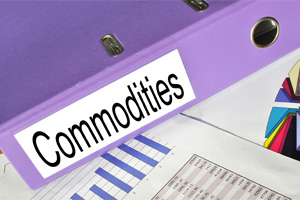In school, each subject's book had unique content. The physics book contained formulas, the math book had equations, and the English book had stories and poems. Similarly, mutual fund schemes embody distinct investment strategies and comprise specific securities. For example, equity funds invest in stocks, debt funds invest in fixed-income securities, and commodity mutual funds invest in commodities. While you have heard of the first two, the third type is still largely unknown. Find out what this is.
What are commodity funds?
Commodity mutual funds specialise in investing in commodities. Commodities are raw products that are traded on the commodities market based on their value in relation to other goods. Some common examples of commodities include oil, minerals, gold, silver, coffee, food grains, etc.
Commodity mutual funds invest in domestic and international markets and are normally structured as Fund of Funds (FoFs) or Exchange Traded Funds (ETFs), like gold or silver ETFs.
It is important to note that there is no distinct classification of commodity funds as per the Securities and Exchange Board of India's (SEBI) categorisation of mutual funds. However, in 2019, SEBI issued a circular permitting mutual fund schemes to invest in Exchange-Traded Commodity Derivatives (ETCDs) and gold and silver.
Types of commodity funds
Commodity mutual funds can be of different types depending on the commodity they invest in and their investment style, as explained below:
- Natural resources funds:These funds invest in companies dealing with gold, silver, oil, petroleum, renewable energy, and other natural resources.
- Future funds:Future funds combine futures investing with commodities. These funds invest in commodities through futures contracts. As future contracts contain high risk, these funds may be among the riskiest of commodity mutual funds.
- Truecommodity funds: Also known as basic commodity funds, these invest in naturally occurring physical assets such as metals.
- Combination funds: These funds offer a combination of basic commodities and commodity futures, striking a balance in risk levels between the two.
- Index funds: Index funds, as you may know, track a particular benchmark index. Commodity index funds do the same, with the exception of only tracking commodity-based indices. These funds aim to replicate the index's performance and are passively managed.
Now that you know enough about commodity funds, you may find yourself contemplating whether they are worthy of investment. Let's find out.
Why should you invest in commodity mutual funds?
- Diversification: Commodities can help you diversify your portfolio, further balancing risk and return. Commodities are an inflation hedge as their prices rise with inflation. They also have a negative correlation with the stock market.
- Simplified investing:Commodity trading can be cumbersome, time-consuming, and require experience. But mutual funds offer a streamlined way out. While investing in commodities requires in-depth knowledge of both the commodity itself and the markets, you get to leverage the expertise of a fund manager with mutual funds. Moreover, you can invest through Systematic Investment Plans (SIPs) or in a lump sum and enjoy more convenience.
- Wide variety of choices:Commodity funds offer several types and choices, like gold & silver ETFs, index funds, and more. You can align your goals with these and cater to your investment preferences.
Your next thought may be whether you are the right candidate to invest in commodity mutual funds.
Target investors for commodity funds
You may find value in commodity mutual funds if you are looking for exposure to the commodities market and want to diversify your portfolio. You can also consider investing in them if you seek protection against stock market volatility and want to create a hedge against inflation.
It is essential to note that although commodity funds are comparatively less volatile than equity funds, they still carry a certain level of risk. The fund's performance is directly influenced by the changes in the market prices of the commodities in which it invests. Hence, it is crucial to have a clear understanding of these associated risks.
Conclusion
Commodity mutual funds can offer exposure to a new asset class, which may lower risks and enhance returns. However, having good knowledge about commodities and how they work is important. This can help you select the right types of mutual fund schemes and align them to your financial goals.
An investor education initiative by Edelweiss Mutual Fund
All Mutual Fund Investors have to go through a one-time KYC process. Investors should deal only with
Registered Mutual Fund (RMF). For more info on KYC, RMF and procedure to lodge/redress any
complaints, visit - https://www.edelweissmf.com/kyc-norms
MUTUAL FUND INVESTMENTS ARE SUBJECT TO MARKET RISKS. READ ALL SCHEME-RELATED DOCUMENTS CAREFULLY
Trending Articles
MUTUAL FUND INVESTMENTS ARE SUBJECT TO MARKET RISKS, READ ALL SCHEME RELATED DOCUMENTS CAREFULLY.




















